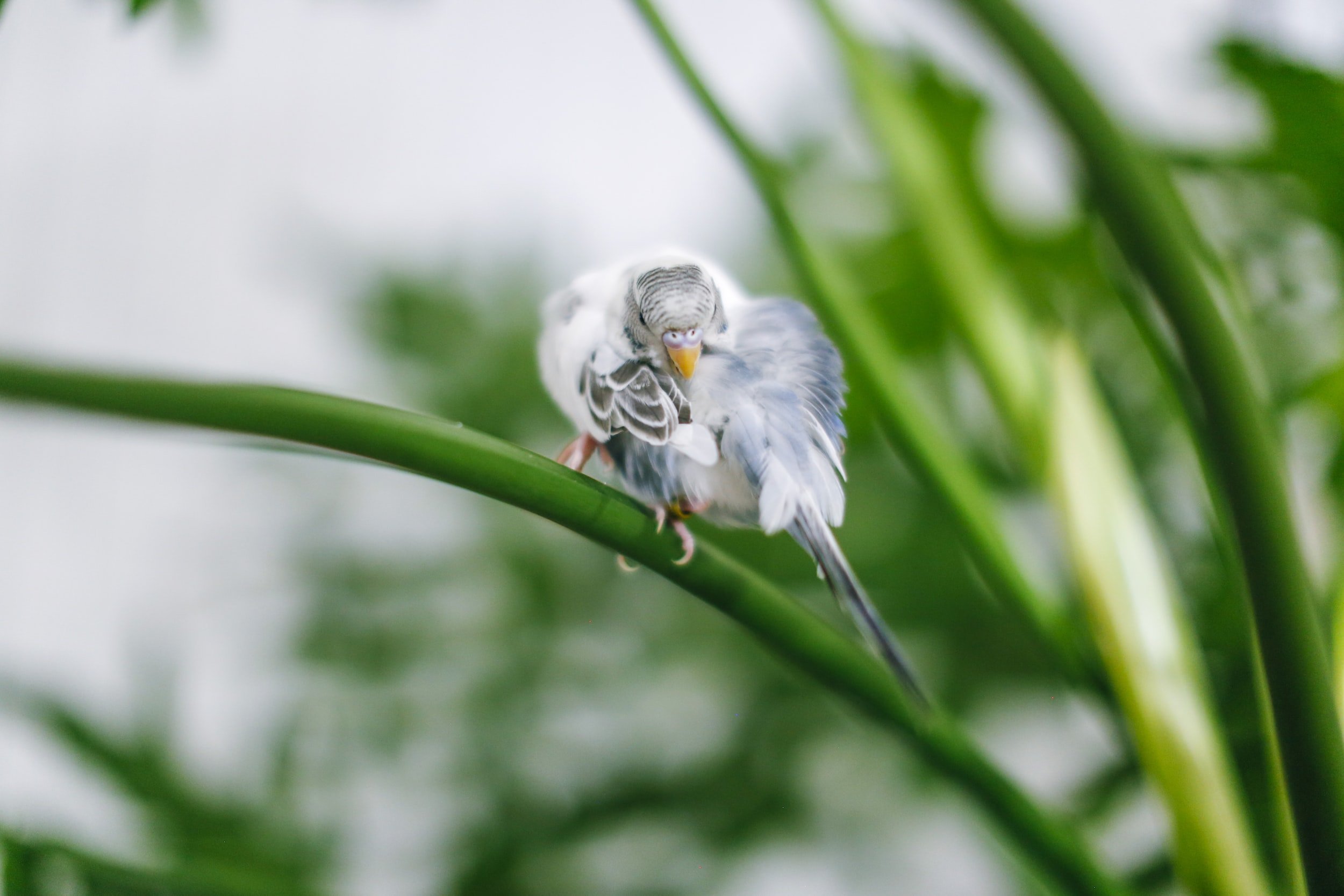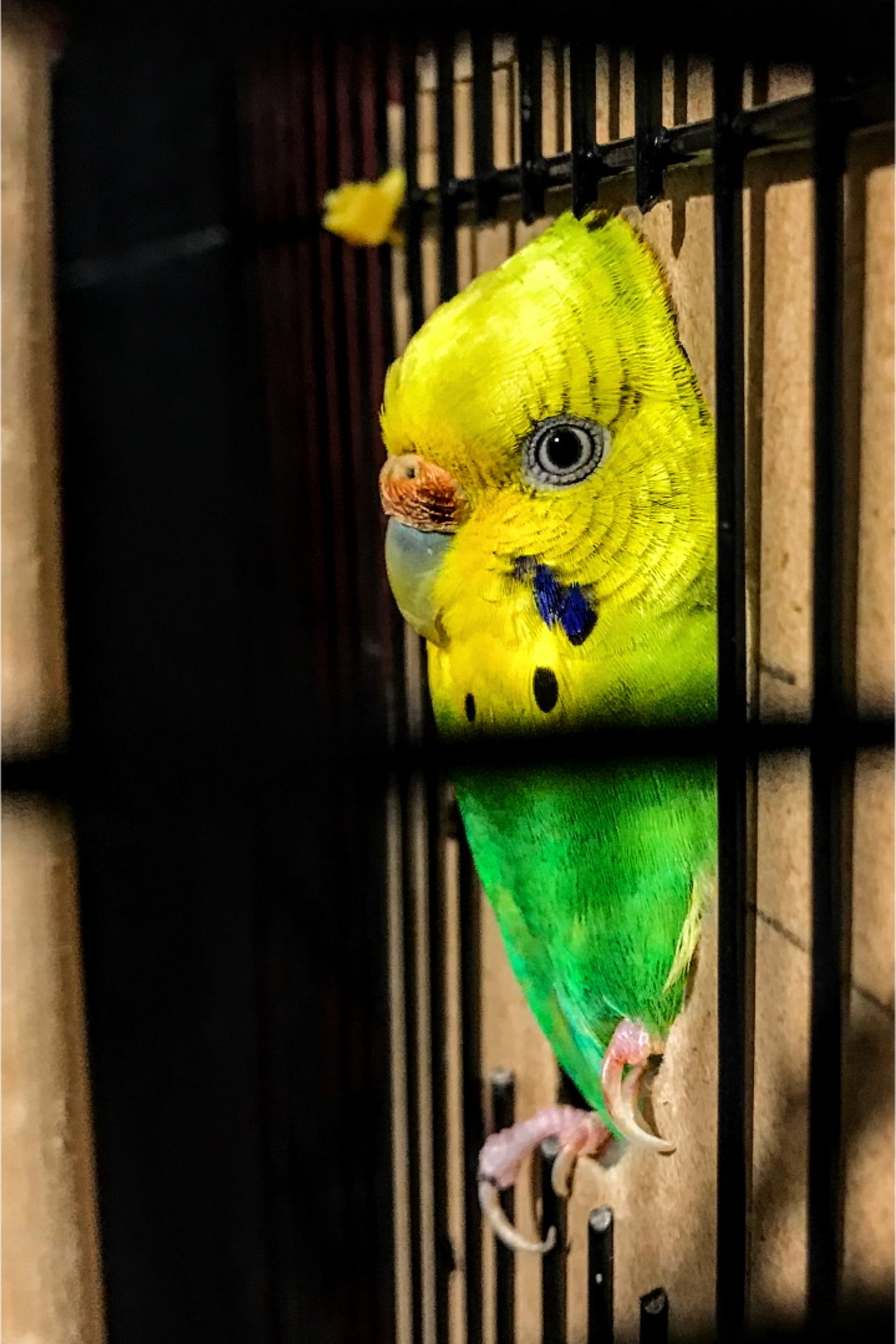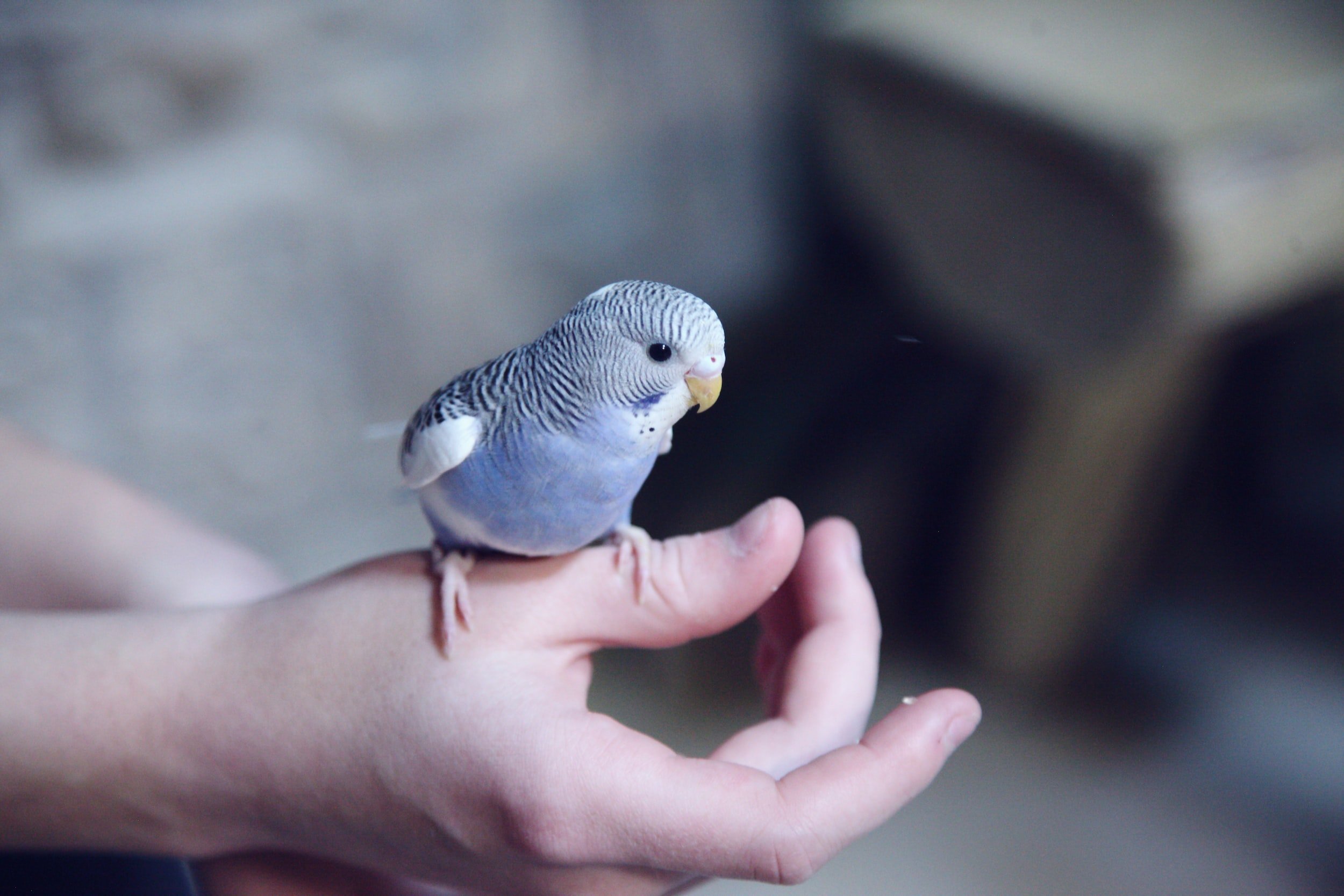There are several reasons pet birds can lose their feathers. This can include moulting, deficiencies in their diet or psychological issues. It can also be due to an underlying illness, viral, bacterial or fungal disease.
Losing feathers due to moulting
What is moulting?
Moulting is the process of shedding and regrowing feathers. Adult birds shed their worn out feathers and grow new, strong, warm feathers. Young birds moult to replace their juvenile feathers with adult plumage.
Moulting keeps a birds feathers in top condition which facilitates flight, temperature regulation, protection and courtship displays.
When do birds moult?
Moulting usually occurs twice a year, depending on the species. The most common time is mid-summer with often a second smaller moult early to mid-winter. Between seasons they may continuously replace old or lost feathers. Moulting occurs gradually so that they are not left bald and unable to fly.
In captivity, some birds bodies can become confused due to exposure to artificial light and lack of exposure to natural seasonal light. This can lead to irregular, incomplete, long or short moults.
During a moult, there is an increased demand for protein, calcium and iron to build new feathers, so a complete and balanced diet is essential.
When is it time to see the vet?
Any changes to your birds normal moulting patterns should be examined by a vet to determine if treatment is necessary. If your bird is moulting irregularly, excessively or has abnormal feather growth, you should also get in touch with your vet for advice.
Losing feathers due to dietary deficiencies
A complete and balanced diet all year round is essential for your birds overall health and wellbeing. During moulting it is particularly important for new feather growth. A lack of essential proteins, vitamins and minerals can result in feather loss and/or feather picking.
How do I offer a complete and balanced diet to my bird?
While they can be a nutritious and important food in a birds diet no single seed or seed mix can supply a bird with all his dietary requirements. Bird pellets are the most well-balanced, complete food available today for caged birds and are readily available from your local pet supply store.
This should be supplemented with vegetables and fruit such as corn, broccoli, carrot, apple (no seeds) and grapes.
Cuttlefish bone is an inexpensive form of calcium carbonate and other trace elements for your bird. Hang them in your bird’s cage for them to chew on, making sure the soft side of the cuttlefish bone is facing the bird.
Your bird will also need fresh, clean water at all times. The water will need to be cleaned and changed daily.
When is it time to see the vet?
If you notice any changes in your birds eating or drinking habits, they have a reduced appetite, change in toileting habits, weakness or poor general appearance its time to take them to the vet. If you have any questions about your birds dietary requirements, this can be discussed with your vet during your consultation.
Losing feathers due to psychological Issues
Common psychological issues that can result in feather loss include stress, unhappiness, boredom, and lack of privacy.
Stress can lead to feather destructive behaviours such as feather plucking. Examples of situations that can lead to stress in a pet bird include changes to the normal routine or household. Moving to a new family home, new pets or family members, outside noise or unfamiliar wild animals seen from the window can all be stress inducing. An intimidating cage mate or lack of mental and physical stimulation can also cause stress. Their cage environment can also impact on their feather health if they are bored, unhappy or lack privacy.
If you think your pet bird may be stressed, try to work out what is causing it and work towards changing their environmental circumstances to minimise it.
When is it time to see the vet?
Birds can exhibit stress in a range of ways. Some can be more physically harmful that others but all should be taken seriously. Speak to your vet if you notice any of the common signs of stress in birds:
Feather plucking
Self mutilation
Stress bars (small lines across feathers)
Aggression
Loss of appetite
Changes in vocalisation
Fear
Repetitive behaviour
Destructive behaviour
Losing feathers due to viral, bacterial, or fungal disease
Viruses, bacteria and fungal disease can result in feather loss in some birds. Psittacine Circovirus Disease can cause damage to feathers, beaks and the immune system, especially to cockatoos and parrots. Strains of the virus can also cause disease in canaries, pigeons, budgies and other bird species. It can result in loss of feathers or feather damage on the head, wings and other parts of the body. Polyomavirus is another virus that can be associated with feather loss.
Bacterial or fungal infections can lead to feather damage and bare patches on the skin. Feather loss can also be caused by an underlying illness such as liver or kidney disease.
When is it time to see the vet?
It is always a good idea to get pet birds with feather loss or skin abnormalities checked out by the vet as soon as the problem is noticed. While there can be many different causes, some of which are not treatable, early intervention will provide the best outcome.
Feathers on a bird provide important protection, insulation, flight and visual signals to other animals. Feather loss and feather plucking can be quite distressing to their owners. If you notice feather loss in your bird or if you have any questions about their health, please call us on 03 8784 4444.





